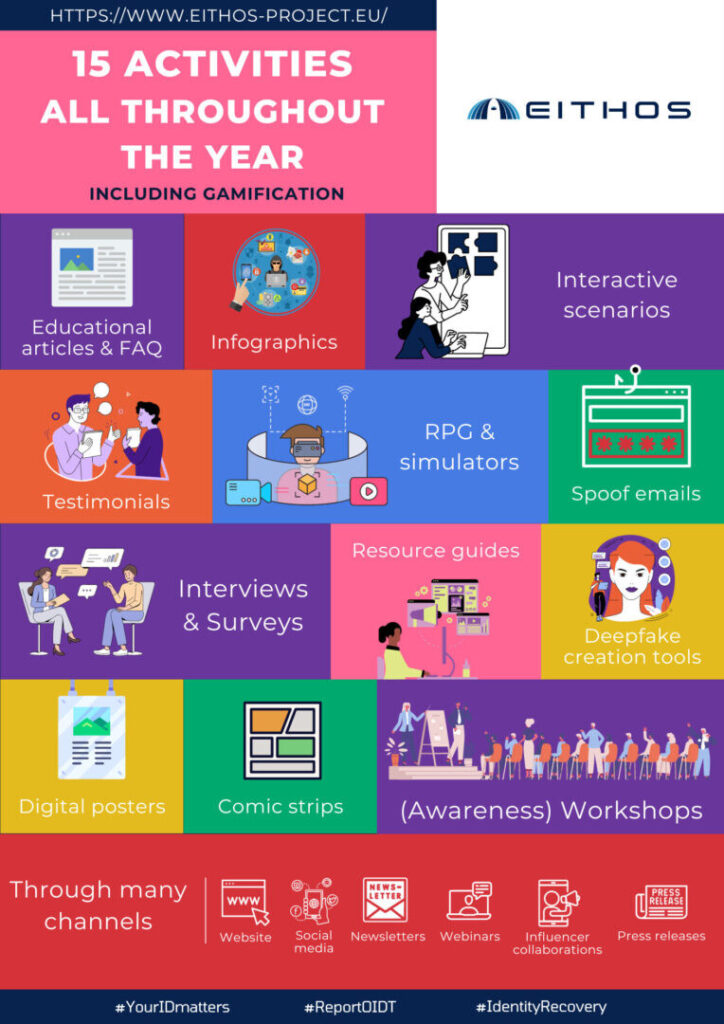The Observatory
Currently, while identity theft related intelligence is available, it is divided in many online places, each containing different pieces of information. As a result, users must search for long hours to find the piece that interests them.
This is reflected in the fact that a large majority of European citizens is unaware of the means to report a cybercrime and an almost equally large proportion of the European society did not report a cybercrime (Directorate-General for Migration and Home Affairs, Kantar. Europeans’ attitudes towards cyber security (2020). European Commission) .
This shows the need of a centralised, accessible gateway, so that European citizens can reach such information effortlessly.
The observatory will be an online centralised portal, which will contain all the available information regarding OIDT protection in Europe, both already known, as well as novel, identified during the project’s lifetime. This information will contain data from a variety of contexts related to OIDT.
These include (but are not limited to): (i) the ways that criminals utilise to steal personal information online; (ii) The ways people can employ to protect their data from being stolen; (iii) trends regarding OIDT and cybercrime (e.g. statistics about the usage of a specific malware, victim demographics); (iv) where to seek victim support; (v) the public outcomes of the project; (vi) report forms for engaging citizens in providing feedback about the observatory and victims for describing their experiences.
Some of this information will be the result from semi-automatically scanning the web and the dark web, utilising data-driven knowledge extraction methods, while other information will be filled and updated by the project’s partners.
Moreover, the project will disseminate the observatory through its awareness raising campaigns and will engage citizens to fill online forms and questionnaires (anonymously or eponymously) to gather data that will accumulate further knowledge on the domain.
Additionally, as a way to inform the citizens about the impact of novel technologies that are able to abuse identity features by a hands-on demonstration, the observatory will provide deepfake creation tools able to run on very specific data and of very limited functionality.
The EITHOS observatory concept


